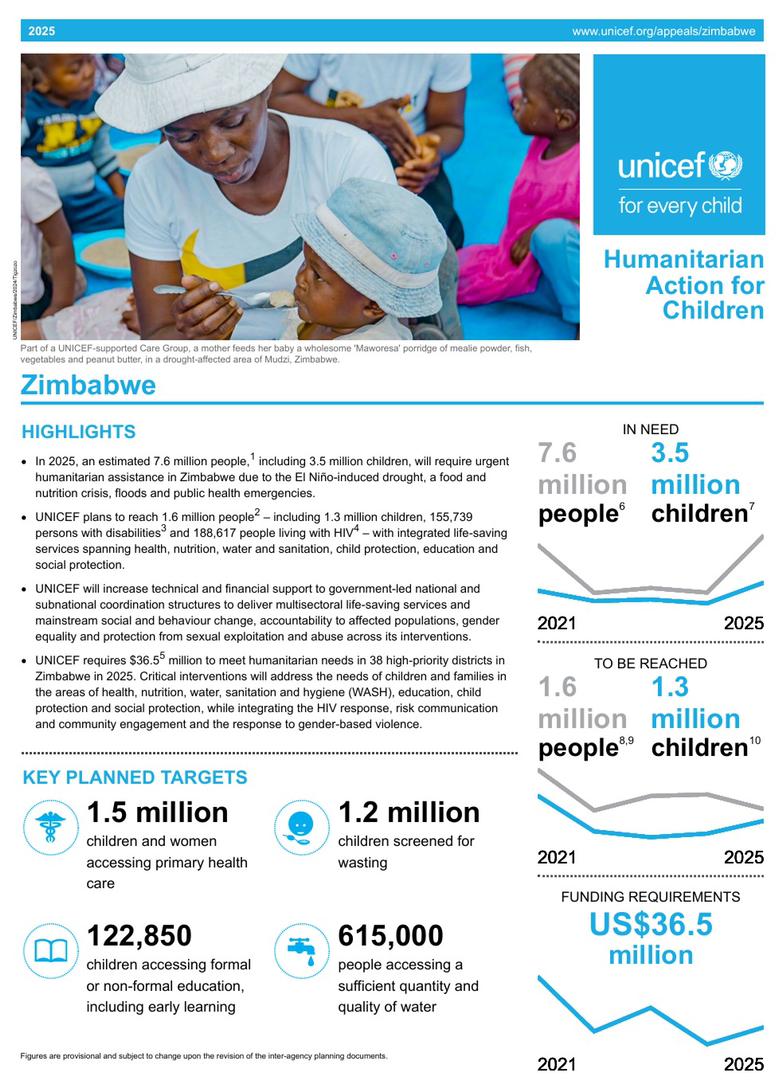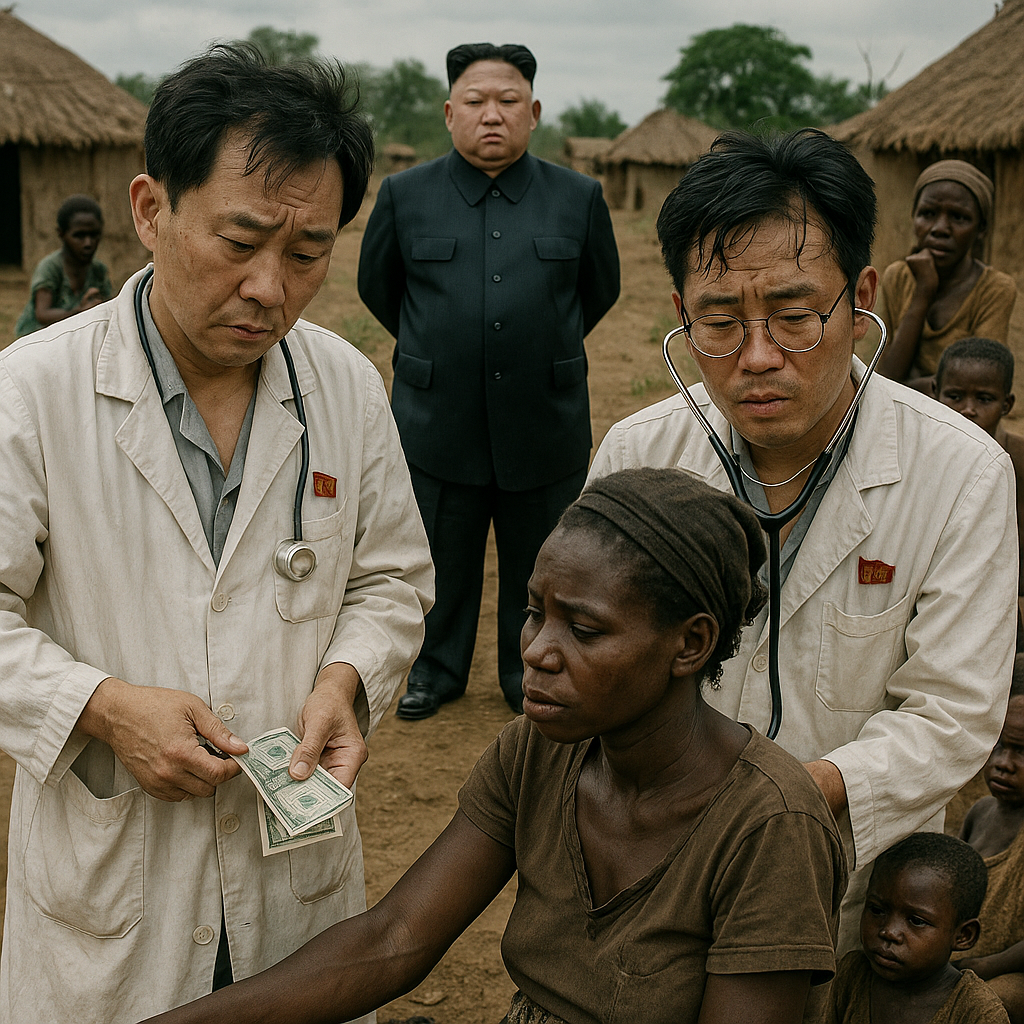In response to a growing humanitarian crisis, UNICEF has called for US$36.55 million to provide life-saving support to 1.6 million people in Zimbabwe, including 1.3 million children. The funding will target 38 high-priority districts across the country that are grappling with the severe impacts of a drought, food insecurity, floods, and health emergencies.
The situation is expected to worsen, with an estimated 7.6 million people in need of urgent assistance in 2025. The crisis is exacerbated by El Niño-induced drought conditions, which have already left 3.5 million children vulnerable. This is coupled with ongoing public health emergencies, including cholera, polio, and mpox outbreaks.
UNICEF’s response will focus on providing health, nutrition, water, sanitation, education, and child protection services, reaching particularly at-risk groups such as persons with disabilities and people living with HIV. The organization is also stepping up support to government-led national and subnational coordination structures to deliver multisectoral interventions, ensuring that gender equality, child protection, and community accountability are integrated into every phase of the response.
“Every year, the need for assistance grows more urgent as climate and health shocks compound, leaving millions struggling,” said UNICEF said in a statement. “Our interventions will focus on ensuring children receive the essential services they need to survive and thrive.”
Among UNICEF’s planned targets for 2025 are:
* 1.5 million children and women accessing primary health care
* 1.2 million children screened for malnutrition
* 615,000 people gaining access to a sufficient quantity and quality of water
* 122,850 children enrolled in formal or non-formal education
The appeal also aims to address the broader needs of affected populations, including improving access to safe water and sanitation, providing nutrition support, and mitigating gender-based violence.
The El Niño-induced drought, expected to intensify through early 2025, is projected to lead to increased malnutrition, particularly in rural districts like Beitbridge, Buhera, and Chimanimani, as well as urban areas where child wasting rates have risen significantly. The situation is compounded by a widespread water crisis, with over 6,000 water points in disrepair and millions without reliable access to safe drinking water.
UNICEF’s strategic response will include community-based health outreach programs, enhanced screening for malnutrition, and strengthening local water and sanitation infrastructure, ensuring that critical services reach the most remote and vulnerable communities.
The humanitarian crisis also demands coordinated action with local governments, civil society groups, and other humanitarian actors. UNICEF’s support will aim to integrate disaster risk reduction into the response, while continuing efforts to build resilience and community capacity for future challenges.
Kukurigo News











